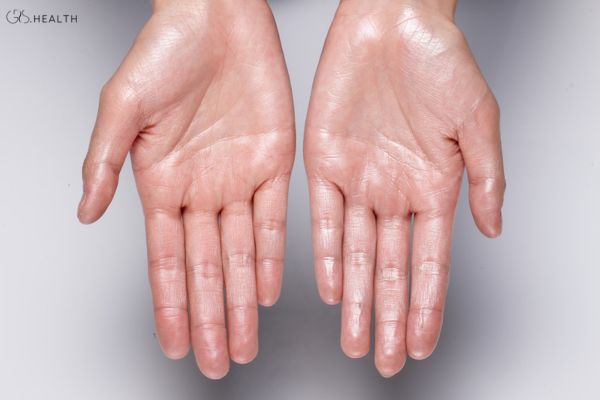Eating disorders are a serious category of mental illnesses that involve disordered eating habits and a preoccupation with body weight or shape. These disorders can be incredibly damaging to both physical and mental health and can have lasting effects on a person’s life. It is essential to be aware of the signs and symptoms of eating disorders and to provide supportive care to those who are struggling with them.
What Is an Eating Disorder?
An eating disorder is a mental health condition that involves problematic eating behaviors and distorted attitudes towards food, weight, and body image. These disorders can be life-threatening and often co-occur with other mental illnesses such as depression, anxiety, and substance abuse. There are several different types of eating disorders, each with unique characteristics.
Eating Disorder vs Disordered Eating
Disordered eating differs from an eating disorder in that disordered eating is not necessarily a mental illness, but rather an unhealthy relationship with food. Disordered eating may involve extreme dieting, obsessive calorie counting, or avoiding certain types of food. While disordered eating may not be a diagnosable mental illness, it may still have severe physical and psychological effects.

Common Eating Disorders
There are four common types of eating disorders: anorexia nervosa, binge eating disorder (BED), bulimia nervosa, and rumination disorder. Let’s take a closer look at each of these disorders:
- Anorexia Nervosa:
Anorexia nervosa is a serious disorder that involves an intense fear of gaining weight, a distorted body image, and extreme weight loss. People with anorexia nervosa may experience restricted eating, excessive exercise, and other behaviors to maintain very low body weight.
- Binge Eating Disorder (BED):
Binge eating disorder (BED) is an eating disorder characterized by periods of consuming large quantities of food, often in secret. People with BED often feel a lack of control over their food intake and may feel guilt or shame after binging. - Bulimia Nervosa:
Bulimia nervosa is an eating disorder characterized by periods of overeating followed by purging behaviors such as vomiting, excessive exercise, or the use of laxatives. People with bulimia nervosa may experience a sense of shame or guilt after bingeing and purging.
- Rumination Disorder:
Rumination disorder is a rare eating disorder characterized by regurgitating food after it has been swallowed and then re-chewing, re-swallowing, or spitting it out. People with rumination disorder may experience weight loss, malnutrition, and dental problems.
Other Eating Disorders
Other specified feeding and eating disorders (OSFED) category encompasses additional eating disorders, such as atypical anorexia nervosa, where the characteristics of anorexia are present but the person’s weight is within an adequate range. Night eating syndrome involves overeating after waking from sleep or the evening meal. Purging disorder entails engaging in purging behaviors without binge eating, including self-induced vomiting or misuse of laxatives, diuretics, or enemas. Subthreshold bulimia nervosa and binge eating disorder are present when a person’s symptoms do not meet the specific criteria of bulimia or BED. Additionally, compulsive exercise, although not a DSM diagnosis, is a condition related to eating disorders where individuals become obsessed with exercise, using it as a way to cope emotionally or as a purging behavior.
Signs and Symptoms of Eating Disorders
There are several types of signs and symptoms that can suggest someone is struggling with an eating disorder. These can include physical symptoms such as rapid changes in weight, irregular menstrual cycles, digestive problems, and dental problems. Emotional symptoms can include a distorted body image, low self-esteem, and an intense fear of gaining weight. Behavioral symptoms may include secretive eating, strict food rules, and purging behaviors such as vomiting or excessive exercise.
How to Support Someone With an Eating Disorder
If you suspect that someone you know or love is struggling with an eating disorder, there are several things you can do to provide support. The first step is to approach the person with compassion, empathy, and understanding. It is essential to offer non-judgmental support and to avoid criticizing their behaviors or weight. Encourage open communication, suggest professional help, and offer to accompany them to appointments. It is also vital to prioritize self-care and seek support for yourself as you support your loved one.
Resources for People With Eating Disorders
Fortunately, there are several resources available for people who are struggling with eating disorders. The National Eating Disorders Association (NEDA) provides a helpline, online screening tools, and directories of treatment providers. Many online support groups and forums are also available, offering peer support and resources for people in recovery. It is crucial to reach out for help and support to begin the journey towards recovery.
Conclusion
Recognizing the signs and symptoms of eating disorders is crucial. Seeking help and support is essential for prevention and recovery. With education and compassion, we can aid those struggling with these complex mental health conditions.
Sources
- National Eating Disorders Association, What are Common Signs and Symptoms of an Eating Disorder?
- Mayo Clinic, Eating disorders
- American Psychiatric Association, What are Eating Disorders?
- The Recovery Village, Eating Disorders Facts and Statistics












